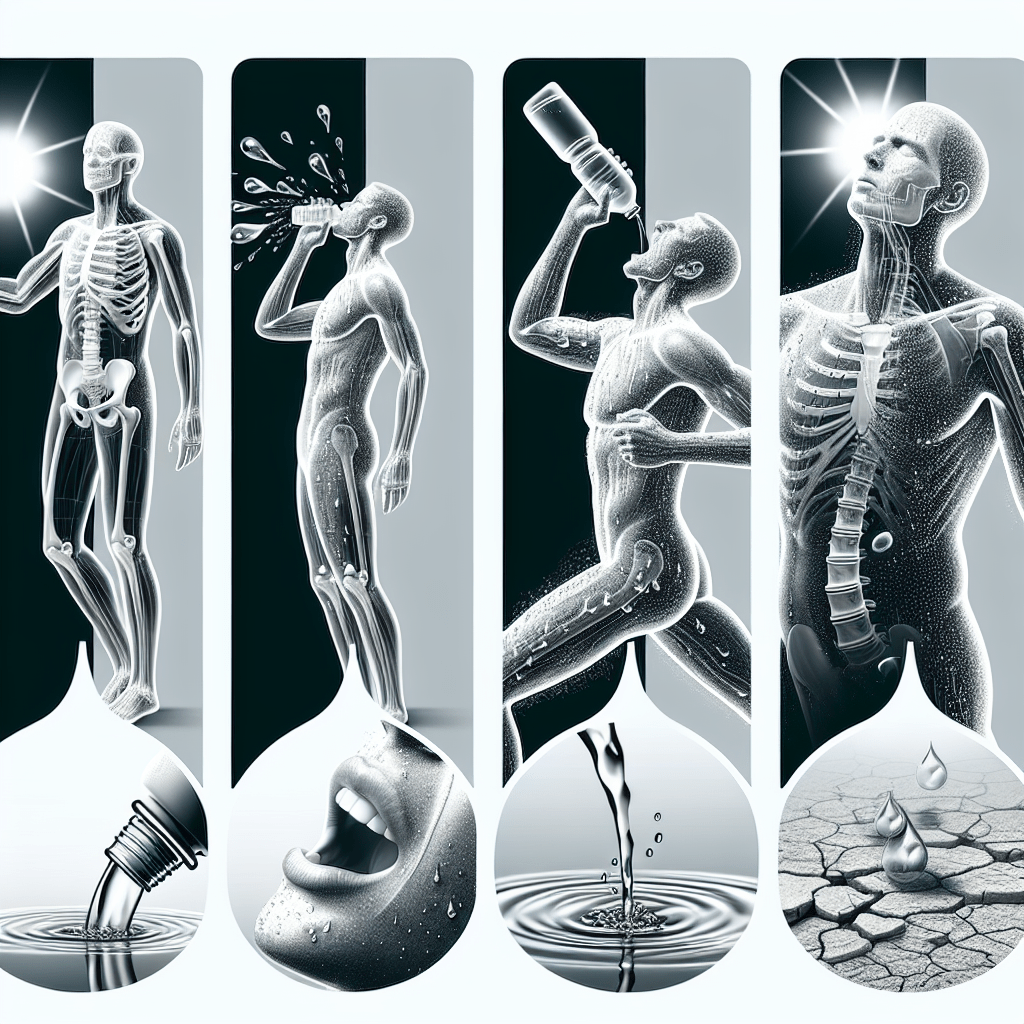why am i dehydrated

Understanding Dehydration: Causes, Symptoms, and Prevention
Dehydration is a common health issue that many of us face, often without realizing it. It occurs when your body loses more fluids than it takes in, causing an imbalance that disrupts normal bodily functions. Understanding why you might be dehydrated can help you take steps to prevent it and maintain optimal health.
The Role of Water in the Body
Water is a vital component of the human body, making up about 60% of our body weight. It plays a crucial role in numerous bodily functions, including regulating body temperature, aiding in digestion, flushing out toxins, and lubricating joints. When the body doesn't have enough water to perform these functions effectively, dehydration sets in.
Common Causes of Dehydration
Dehydration can result from various factors, including insufficient water intake, excessive sweating, diarrhea, vomiting, diabetes, and certain medications. Environmental conditions such as hot weather or high altitudes can also increase the risk of dehydration.
Symptoms of Dehydration
Common symptoms of dehydration include thirst, dry mouth, fatigue, dizziness, and decreased urine output. Severe dehydration can lead to more serious symptoms such as rapid heartbeat, sunken eyes, and fainting. As the famous saying goes, "If you're thirsty, you're already dehydrated."
Preventing Dehydration
Preventing dehydration is as simple as ensuring you drink enough fluids throughout the day. The amount of water needed varies depending on factors such as age, sex, weight, and activity level, but a general guideline is to drink at least eight 8-ounce glasses of water per day. Eating foods with high water content, such as fruits and vegetables, can also contribute to your daily water intake.
"Water is the driving force of all nature." - Leonardo da Vinci
Dehydration and Heart Health
Dehydration can have a significant impact on heart health. When the body is dehydrated, it can cause the blood to thicken, increasing the risk of blood clots and leading to increased heart rate and blood pressure. A scientific study published in the Journal of the American College of Cardiology found that even mild dehydration can impair vascular function nearly as much as smoking a cigarette.
"Even mild dehydration can influence mood, energy levels and the ability to think clearly." - Journal of Nutrition
Conclusion
Dehydration is a common but preventable health issue. By understanding the causes and symptoms of dehydration, you can take steps to ensure you stay adequately hydrated and maintain optimal health. Remember to drink enough water throughout the day, especially in hot weather or during physical activity, and listen to your body's signals for thirst. As Leonardo da Vinci aptly put it, "Water is the driving force of all nature."
In summary, water plays a vital role in our bodies, and dehydration can disrupt these functions. Common causes of dehydration include insufficient water intake, excessive sweating, and certain medical conditions. Symptoms of dehydration range from thirst and fatigue to more severe signs like rapid heartbeat and fainting. Preventing dehydration involves drinking enough water and consuming foods with high water content. Dehydration can also impact heart health, with studies showing that even mild dehydration can impair vascular function. Therefore, staying hydrated is not just about quenching your thirst - it's about maintaining your overall health and well-being.



